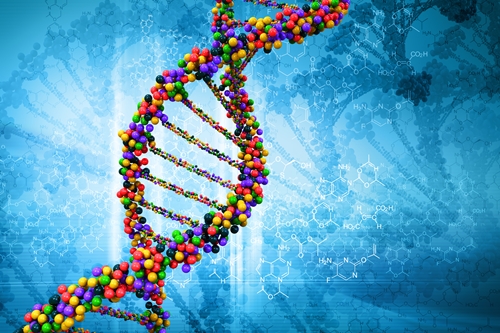27 February 2017. A biotechnology start-up is applying a process for editing-out disease-causing mutations to correct the inherited disorder Duchenne muscular dystrophy. Exonics Therapeutics Inc. is being formed in Boston by the venture division of CureDuchenne, a research funding and advocacy organization seeking remedies for the disease, and raising $5 million in seed capital.
Duchenne muscular dystrophy is a rare genetic disease resulting in progressive muscle degeneration and weakness, primarily in the shoulders, arms, hips, and thighs. The condition affects mainly boys starting at age 3 to 5, and caused by a defective gene that fails to produce the protein dystrophin for strengthening muscle fiber and protecting muscles from injury. While life expectancy can vary, people with Duchenne muscular dystrophy do not often survive past their 20s or 30s, with death caused by respiratory or cardiac failure.
Exonics Therapeutics is licensing research applying the genome-editing technology Crispr to remove the defective DNA responsible for Duchenne muscular dystrophy. Crispr, short for clustered regularly interspaced short palindromic repeats, is a technique based on bacterial defense mechanisms that harnesses RNA to identify and monitor precise locations in DNA. The actual editing of genomes with Crispr uses an enzyme known as Crispr-associated protein 9 or Cas9. With this approach to Crispr, RNA molecules guide Cas9 proteins to specific genes needing repair, making it possible to address root causes of many diseases.
For Duchenne muscular dystrophy, Exonics is licensing Crispr-Cas9 technology developed by molecular biologist Eric Olson at University of Texas Southwestern Medical Center in Dallas, and scientific founder of the company. Techniques devised by Olson’s lab employ adeno-associated viruses to deliver the RNA molecules with Cas9 proteins to correct mutations in the gene producing dystrophin. Adeno-associated viruses are benign and naturally occurring microbes that can infect cells, but do not integrate with the cell’s genome or cause disease, other than at most mild reactions in humans.
In preclinical tests, Olson and colleagues used Crispr-Cas9 to edit out the faulty exons, or protein-coding parts of the DMD gene responsible for low or non-production of dystrophin. In a study published last year in the journal Science, the researchers edited out the suspect exons in young mice, from 1 to 18 days old, induced with Duchenne muscular dystrophy. The edits resulted in restored production of dystrophin in skeletal and heart muscles, as well as stronger gripping abilities after 4 weeks.
The authors note that the edits took place in mice’s genomes after birth, and not in the embryo. Section 749 of the U.S. Consolidated Appropriations Act of 2016 prohibits FDA review of “a drug or biological product in research in which a human embryo is intentionally created or modified to include a heritable genetic modification.” Voluntary guidelines developed by scientists and bioethicists allow for research on conditions in non-heritable or somatic cells, but only rarely with inheritable or germline cells.
Exonics is raising $5 million in seed capital, with half of that amount provided by CureDuchenne Ventures, a division of the research funding and advocacy group CureDuchenne in Newport Beach, California. CureDuchenne Ventures provides grants, loans, and in this case equity financing to support development of treatments and diagnostics for the disease. Exonics is one of two enterprises founded with CureDuchenne Ventures backing.
Olson says gene-editing therapies can correct as many as 80 percent of Duchenne muscular dystrophy cases. He tells more about the technology in the following video.
- Genome Editing Builds Viral Disease Resistance in Pigs
- Patent Office Decides for Broad and Editas in Crispr Case
- Biotech Group Withholds Support for Germline Trial Report
- Electronic Gene Editing Corrects Inherited Blood Disorder
- Gene Silencing Treatments Licensed for Heart Disease
* * *


 RSS - Posts
RSS - Posts
You must be logged in to post a comment.